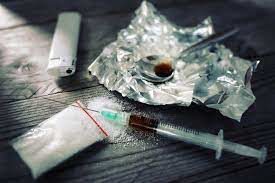Is bipolar disorder genetic? Bipolar disorder, a mental illness characterized by mood disruptions ranging from happiness to sadness to anger, is one of the most commonly discussed mental illnesses worldwide. It is estimated that approximately 4.6 percent of individuals will experience this condition at some point in their lives. Furthermore, bipolar disorder is highly influenced by genetics, with a greater risk of developing the disorder if there is a family history of the disease.
In this article, we will explore the potential genetic factors that contribute to bipolar disorder and ‘answer the question of is bipolar disorder genetic?’.
What is Bipolar Disorder?
Bipolar disorder is a mental health condition that affects a person’s mood and behavior. It is characterized by extreme mood swings, which can include periods of elevated mood, known as mania or hypomania, and episodes of low mood or depression. These mood swings can vary in intensity and duration and significantly disrupt a person’s daily life, relationships, and functioning.
During these manic episodes, individuals with bipolar disorder may experience elevated mood, increased energy levels, impulsivity, racing thoughts, reduced need for sleep, heightened irritability, and a sense of grandiosity or inflated self-esteem. While during depressive episodes, individuals may experience persistent sadness, loss of interest in activities, changes in appetite and sleep patterns, difficulty concentrating, and thoughts of death or suicide.
Types of Bipolar Disorder
While you may have only heard of bipolar disorder, there are several types of bipolar disorder, including bipolar I disorder, bipolar II disorder, and cyclothymic disorder. Each type has its unique diagnostic criteria and characteristics, but all involve significant disruptions in mood regulation.
Bipolar I Disorder
This is the classic form of bipolar disorder characterized by episodes of full-blown mania, which may or may not be accompanied by depressive episodes. During manic episodes, individuals may exhibit extreme elation, increased energy levels, impulsivity, and impaired judgment. These episodes can be severe and may require hospitalization to ensure the safety and well-being of the individual. Depressive episodes in bipolar I disorder are similar to those in major depressive disorder, with persistent sadness, loss of interest or pleasure, and other depressive symptoms.
Bipolar II Disorder
Bipolar II disorder is characterized by episodes of hypomania, which are less severe than full-blown mania. Hypomanic episodes may involve elevated mood, increased energy, and impulsivity, but they are generally less disruptive and shorter in duration than manic episodes. Individuals with bipolar II disorder also experience depressive episodes, similar to those with bipolar I disorder or major depression disorder.
Cyclothymic Disorder
Cyclothymic disorder is seen as the milder form of bipolar disorder. It is characterized by persistent mood swings involving hypomanic and depressive symptoms that are less severe and shorter in duration than those seen in bipolar I or II disorder. These mood swings may persist for at least two years in adults (one year in children and adolescents) without meeting the full criteria for hypomanic or depressive episodes.
Causes of Bipolar Disorder
Bipolar disorder is a chronic condition that typically presents in late adolescence or early adulthood, although it can also occur in childhood or later in life. While there is no specific cause of bipolar disorder, research suggests that genetic, environmental, and neurochemical factors contribute to its development.
Genetic Factors
Bipolar disorder is a mental illness caused by mutations in specific genes. The cause of bipolar disorder is not always known, but it is often due to genetic changes. A person who has one parent with bipolar disorder has a ten percent chance of having the disease. But those with two parents with bipolar disorder are more likely to develop it, as well as those who are adopted and have one biological parent with bipolar disorder.
Environmental Factors
On top of genetic factors, environmental factors contribute to the development of bipolar disorder. There are several different kinds of environmental factors, and some of them are:
- Childhood trauma
- Substance use and addiction
- Stressful life events or significant life changes
- Irregular sleep patterns
- Lack of social or environmental stability
Neurological Factors
Neurological factors play a significant role in developing and manifesting bipolar disorder. Imbalances in neurotransmitters, increased risk of developing schizophrenia, abnormalities in brain structure and function, genetic factors, alterations in neuroplasticity, and disruptions in circadian rhythm are among the factors that may contribute to the complex pathophysiology of bipolar disorder. Further research is needed to understand the underlying neurological mechanisms of bipolar disorder and develop more effective treatments for this challenging condition.
Genetics of Bipolar Disorder
It has been well-established that bipolar disorder has a strong genetic component, and having a family history of bipolar disorder increases the risk of developing the condition. Research suggests that if one parent has bipolar disorder, the chance for their child to develop it is estimated to be around 12-18%. If both parents have been diagnosed with bipolar disorder, the risk can increase to 30-50%. However, it’s important to note that genetics alone do not determine the development of a bipolar disorder, and other factors, such as environmental triggers, also play a significant role.
While genetic risk factors are associated with bipolar disorder, having a genetic predisposition to bipolar disorder does not guarantee that an individual will develop the condition. There are likely other factors, such as environmental triggers, that interact with genetic factors to trigger the onset of bipolar disorder. The relationship between genetics and bipolar disorder is complex and continues to be an active area of research to understand the underlying mechanisms better and develop more effective treatments.
Research on Bipolar Disorder
Bipolar disorder is a mental illness that causes mood swings, which can lead to depression or mania. Research on the genetics of bipolar disorder has been going on for decades, but scientists haven’t definitively pinned down the exact biological causes of the disease.
Research on bipolar disorder and genetics has shed light on the complex interplay between genetic factors and the development of this mental illness.
One of the key findings from genetic studies is that bipolar disorder has a vital heritable component. Numerous studies have shown that individuals with a family history of bipolar disorder are at a higher risk of developing the condition compared to those without such a family history. For example, if one parent has bipolar disorder, the risk of their child developing it is estimated to be around 12-18%, while the risk increases to 30-50% if both parents have bipolar disorder. These findings suggest that genetic factors play a significant role in the etiology of bipolar disorder.
Research on bipolar disorder and genetics has revealed that genetic factors play a significant role in developing this mental illness, with specific genes and complex genetic models implicated. However, the interplay between genetics and environmental factors in the etiology of bipolar disorder is complex and requires further investigation to understand the underlying mechanisms fully.
Mental Health Services at Knoxville Recovery Center
Mental health conditions can be isolating and hard to manage on your own. Fortunately, therapy is available for those battling addiction and mental health issues. Knoxville Recovery Center offers various treatment programs and services to those struggling with addiction or mental illness. Our addiction treatment programs provide comprehensive and holistic therapeutic approaches to help those in recovery. Knoxville Recovery Center is there for you when you are struggling and will be there for you every step of the way.
If you or a loved one is struggling with mental health problems and needs help, our highly trained medical professionals are on standby and ready to help. Contact us and speak with an expert today.











